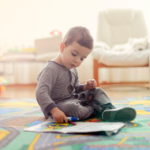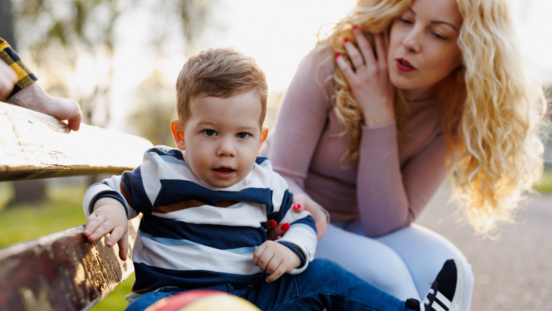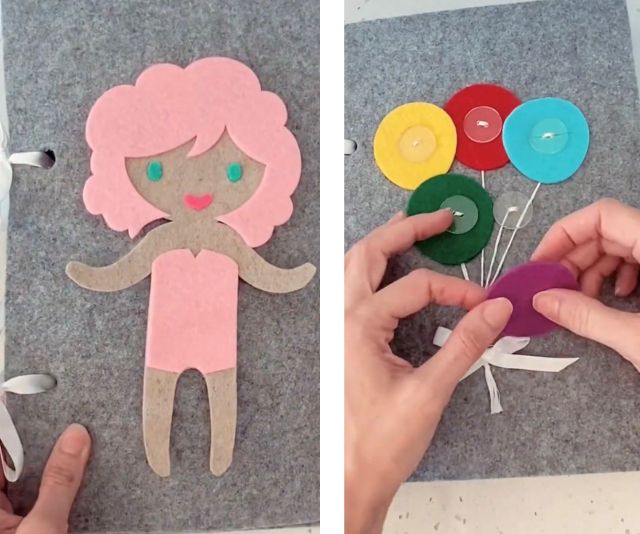Toddler alone time: Tips for playtime and development
Toddlers love your company but they also need to go it alone sometimes
No matter how many activities you have in your house for your baby to play with, you are her favourite toy.
Children crave time with their parents, as it's a great way for you to bond with each other. And while it's tempting to devote all of your attention to your little one, child psychologist Kathy Walker says that it's also important for you to make sure you are not 'over-involved' as they play. "Mums should make sure they stand away sometimes, so their children can figure things out for themselves," she explains.
Kathy says most babies start learning to 'play' from a young age, for example, she may bang a drum or cuddle a teddy. But once she begins to understand that toys have other uses, she's picking up vital learning skills that she may not acquire so quickly if you are closely supervising her playtime.
Recent studies reveal that 'helicopter parenting' – when a mum stands or hovers over her children – may lead to a child feeling bored and miserable when they are away from you.
Researchers at the University of Missouri found that mums who tried to tell their children how to play with their toys caused their toddler to lose interest quickly. They also found the happiest children were the ones who were left alone to play, and had the least amount of interference from well-meaning parents.
"It can be hard to encourage your child to be alone," Kathy says. "But once your child gets used to playing alone it will help take the pressure off you to entertain her all of the time."
Try these six ideas for finding the right balance when it comes to supervising playtime …

Research has found the happiest children were the ones who were left alone to play.
Step back
Kathy says it is fundamental that mums stand back to let their children figure out things for themselves. "Play is natural for children, and they are able to keep themselves occupied for hours," she says.
Although it may be upsetting for her at first, if you allow your child time to play on her own she will learn to become more independent, motivated and confident. This is because she will be problem-solving for herself, and when you step away you are giving her the freedom to explore the world around her in her own way.
Quality play
Kathy says there is now a lot of pressure on parents to fill their kids' days with activities, and mums may be confusing play with entertainment.
"A lot of parents feel they need to keep their children stimulated by giving them the latest gadgets and trying to keep them occupied with toys that don't require them to think," she explains. This may stop her from solving problems herself. As well, you may find it hard to not get involved because some gadgets are complicated and need your assistance. "This could be another reason why mums hover over their children," Kathy adds.
Find a balance
The bond created from playing with your bub is important, so it is vital you make time to spend with her.
Kathy suggests that there needs to be a balance, with half of your child's playtime spent with you and the rest of her time playing independently.
WATCH: This toddler just wants his mum to know he loves her. Continues after video …
Sharing with others
It's also important for your child to play with other children her own age. "She will learn how to share, be patient and acquire other social skills," Kathy says. If there are two or more children then they tend to create different games, and it will help them to mix with others. This will help prepare your child for when she starts preschool, as she will be interacting with other children.
Don't feel guilty
You may want to devote all of your time and attention to your child, but it is okay to give her time to amuse herself without feeling guilty. Kathy also says children need less stimulation than we think. "If you never leave your baby, then she won't learn to know what it's like to not have you around or how to settle herself," she explains.
By finding somewhere safe for her to play alone, away from potential hazards or sharp corners, you can let your toddler explore on her own with toys like blocks or balls while you have some time to yourself.
Encourage independent play
There are many ways to encourage your baby to play on her own. Kathy says games such as role play and dress-ups can be very helpful for a baby's communication skills.
"By pretending to be a teacher or a fireman, children are relating to others in the community around them,"she says. Building blocks or products that can help stimulate her imagination are great toys too. "Another alternative may be to give her a bucket and ask her to collect things in the garden. Afterwards you can help her stick them onto paper to create cards or pictures."




